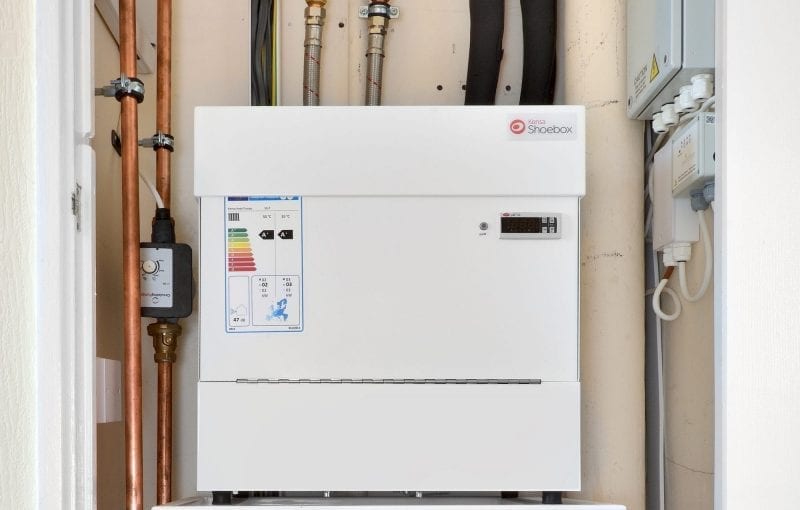What is a ground source heat pump? How does it work? Is a heat pump better than a boiler? Explore our heat pump FAQs and find all the answers to your ground source questions:

What is a ground source heat pump? How does it work? Is a heat pump better than a boiler? Explore our heat pump FAQs and find all the answers to your ground source questions:

A heat pump can extract energy from renewable sources such as ground, water and air. Watch our useful video on how heat pumps work and discover the environmental and financial advantages.
Learn moreThe efficiency of a heat pump depends on factors such as the energy source or how well insulated the building is. See our top tips on maximising efficiency, how it’s affected and how it’s measured.
Learn moreGround source heat pumps provide heating and hot water without the emissions of fossil fuels like gas, LPG and oil. See how they compare in cost, carbon, maintenance and more.
Learn moreDelivering a whopping 77% saving on emissions versus gas, see how ground source heating compares to the familiar boiler. Discover the differences in costs, efficiency, environmental impact and more.
Learn moreThere are many factors that differentiate air source from ground source heat pumps – including the fact that air source units absorb heat energy from the air, and ground source units from the ground or water. Discover the differences in efficiency, running costs – and see our comparison animations!
Learn moreA ground source heat pump can deliver heating, hot water and even cooling. See our top tips on heat pumps with radiators or underfloor heating, and discover how hot your hot water can really be.
Learn moreGround source heat pumps can help projects affordably and easily conform to building methods and regulations. Explore the accreditations of Kensa’s heat pumps and how they benefit installers, households and businesses.
Learn moreFrom summer cooling to combatting overheating, browse the benefits of passive and active cooling with ground source heat pumps. Includes potential costs and our very own video on how ground source cooling works.
Learn moreGround source heat pumps can absorb energy from sources such as soil, water or rock. Find out how heat pumps collect heat and compare each source’s cost, space and efficiency.
Learn moreA water source heat pump absorbs energy from bodies of water such as ponds, lakes or even the sea. Explore our water source page to see who it’s ideal for, things to consider and all the different types of water sources you could harness heat from.
Learn moreSlinky pipes and straight pipes are forms of ground arrays used to collect heat from surface soil. See how much space you might need, top tips, costs and one-to-one comparisons.
Learn moreA borehole is a type of ground array. Discover how deep they are, how they collect heat and what sort of projects they are perfect for.
Learn moreTraditionally, district heating means delivering heat to multiple dwellings from a centralised system. However, Kensa has a low-carbon approach. Discovers Kensa’s innovative Shared Ground Loop Arrays and how they connect communities to a net-zero carbon future.
Air pollution is typically created by combustion heating systems that burn gas, oil, LPG or biomass to produce heat. Ground source heat pumps improve air quality with next-to-no emissions. See the important role they play in reducing pollution.
Learn moreA cascaded heat pump system incorporates multiple heat pumps into a system. See how it works, who it benefits and discover the cascaded possibilities.
Learn more